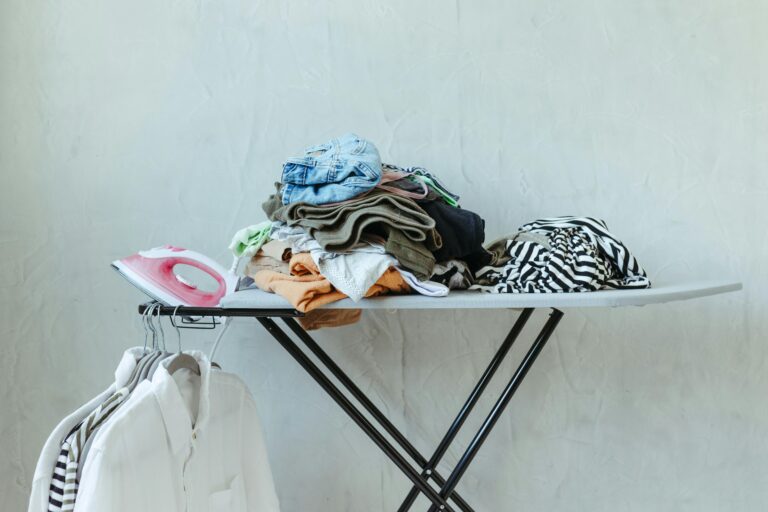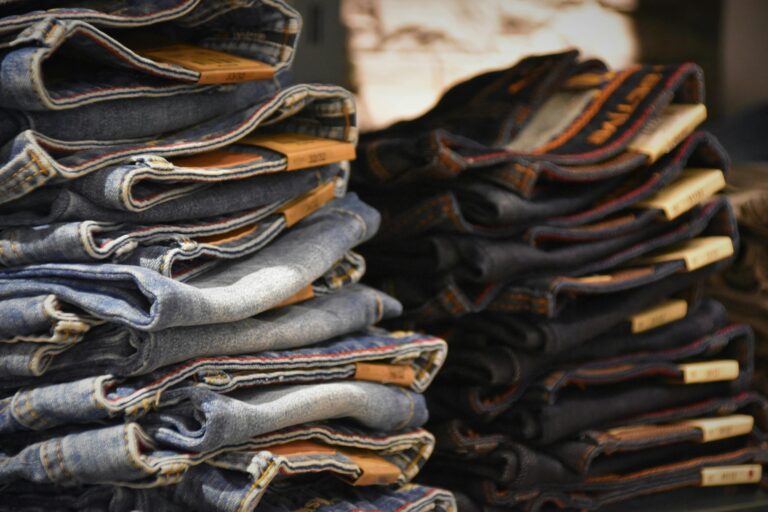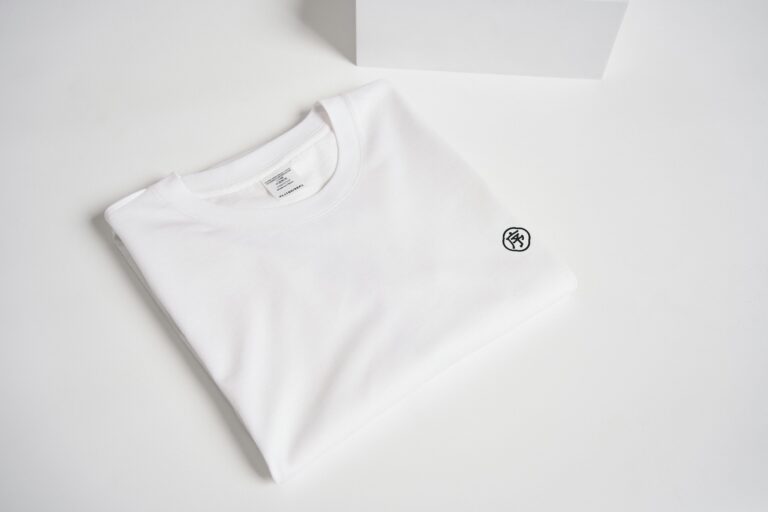In today’s world, many individuals seek eco-friendly laundry solutions to achieve fresh laundry without chemicals. Natural fabric softeners provide an excellent alternative to conventional options, crafted from plant-based ingredients that are gentler on both our clothes and the environment. While fabric softeners are not a necessity and their use often boils down to personal preference, it’s essential to understand the potential downsides of traditional options. Residue buildup from these products can affect the absorbency and breathability of fabrics over time, especially items like towels and athletic wear1. Moreover, the use of conventional fabric softeners can lead to allergic reactions in some individuals, causing skin irritation, respiratory issues, or headaches1. With the fabric softener market projected to reach $19.7 billion by 20262, the need for safer, natural alternatives is becoming increasingly significant.

What is a Natural Fabric Softener?
A natural fabric softener is made from organic materials that are free from toxic chemicals, ensuring that your laundry is treated with care. Unlike conventional softeners, these plant-based softeners work to soften fabrics, eliminate static, and enhance freshness without leaving behind hazardous residues. The benefits of natural softeners include biodegradable ingredients known for their safety and effectiveness, which provide a gentle laundry experience.
Examples of effective alternatives include using aluminum foil balls, which should be replaced every few months, and wool dryer balls made from 100% wool yarn that can last for up to 1000 loads34. Many people find satisfaction in DIY natural fabric softener recipes that blend ingredients like baking soda, vinegar, and warm water. A popular recipe suggests mixing two parts warm water to one part baking soda and vinegar, using about one-quarter cup per load3. This alternative not only softens the fabric but prevents the buildup often seen with chemical-based products.
Research indicates that traditional fabric softeners may irritate the skin and harm laundry, making natural options more appealing5. By opting for these natural solutions, consumers can safely enjoy soft, fresh laundry while supporting environmentally friendly practices.
Why Choose Natural Over Conventional Softeners?
Choosing natural fabric softeners over conventional options offers numerous advantages. Traditional fabric softeners may contain harmful chemicals like glutaraldehyde and hexylene glycol, which can induce skin irritation and respiratory problems6. These products often utilize synthetic fragrances and dyes derived from petroleum, contributing to environmental pollution and posing health risks7. In contrast, natural fabric softeners, which commonly include ingredients such as vinegar and baking soda, are effective and safe alternatives that are gentle on sensitive skin8. Studies indicate that natural alternatives are as effective in softening laundry as their conventional counterparts, showcasing that you don’t have to compromise performance for safety8. Furthermore, these natural fabric softeners are typically more affordable and can often be made at home, incorporating ingredients commonly found in many households8. This cost-effectiveness not only saves money but also promotes a sustainable lifestyle, reducing water pollution and minimizing chemical exposure7. Adopting natural laundry solutions not only provides a healthier home environment but also supports eco-friendly practices that can contribute to carbon footprint reduction7.

Top Natural Fabric Softener Brands
The growing interest in eco-friendly laundry care has paved the way for the emergence of several best natural fabric softener brands. Seventh Generation stands out with its hypoallergenic formula, which is free from optical brighteners and synthetic fragrances, ensuring a gentle touch for sensitive skin9. Similarly, Mrs. Meyer’s Clean Day offers a variety of organic fabric softener products, all of which are Leaping Bunny certified cruelty-free, making it a favored choice for conscientious consumers9. Ecover is another notable brand, utilizing a unique blend of essential oils and botanical extracts, as well as 100% renewable energy in a zero-waste production facility9.
Attitude fabric softener has earned accolades for being EWG Verified™, promising transparency and health standards by avoiding concerning chemicals9. This brand incorporates enzyme-based softening technology that enhances fabric softness without leaving unwanted residues, contributing to an eco-friendlier laundry routine. As the global fabric softeners market continues to grow, projected to increase from $15.7 billion in 2020 to $19.7 billion by 202610, consumers are becoming increasingly aware of the benefits found in organic fabric softener products.
Prices for these natural options vary significantly, with Public Goods’ Fabric Softener Sheets at around $7, while Grove Collaborative’s price range goes from $5 to $2210. As eco-conscious laundry products demonstrate their advantages, it becomes increasingly clear why leading brands in this market prioritize sustainability, health, and effective performance.
DIY Natural Fabric Softener Recipes
Crafting your own homemade fabric softener is both easy and budget-friendly. There are two main DIY natural fabric softener recipes commonly found online. The first recipe combines vinegar, baking soda, and optional essential oils, resulting in a total cost of $2.17 when essential oils are included. The cost per load for this recipe is approximately $0.2711. It has been rated a 7 on the softness scale, with a scent described as very faint11. This recipe yields about 8 loads of laundry.
The second recipe consists of hot water, vinegar, and conditioner, coming in at a total cost of $1.04. This version is significantly cheaper, with a cost per load ranging from $0.03 to $0.0511. It received a higher softness rating of 8 and provides a light but noticeable fragrance11. This recipe can last for 30-40 loads, making it a great economical choice.
Another popular recipe makes 1.1 liters of natural fabric softener and requires just a few simple ingredients: 1/2 cup fine salt, 1 cup hot water, 3 cups of white vinegar, and 2-3 drops of essential oils, like lemon and eucalyptus12. Preparation time for this concoction is less than 5 minutes, reflecting its ease of use. For best results, it is recommended to use distilled, purified, or pre-boiled and cooled water12. The suggested quantity to use per wash is approximately 1/2 cup, enhancing the effectiveness of your laundry routine while keeping things natural.
Essential Ingredients in Natural Fabric Softeners
Choosing natural fabric softeners means leaning on effective softening agents that offer both performance and safety. Commonly found natural fabric softener ingredients include white vinegar and baking soda. Vinegar works to soften fabrics by breaking down detergent residues and eliminating static cling while maintaining a gentle fragrance that enhances laundry freshness13. Baking soda serves as a deodorizer and pH balancer, ensuring a well-rounded softening profile13.
Essential oils such as lavender, lemon, and tea tree oil add pleasant scents and contribute antibacterial properties, making them popular among DIY enthusiasts13. Furthermore, hair conditioner, particularly natural and paraben-free options, can coat fabric fibers for improved softness and reduced static. Citric acid appears as another valuable ingredient, softening fabrics and brightening colors when mixed into the rinse cycle. It often creates a variety of blends tailored to individual preferences13.
Homemade fabric softeners can significantly diminish the environmental impact of laundry practices due to their biodegradable ingredients and avoidance of harsh chemicals. As these natural fabric softener ingredients typically come at low costs, homeowners enjoy impressive savings over commercial alternatives. Statistical data indicates a marked preference among households for natural scents like lavender and lemon, as well as a growing transition towards DIY solutions to avoid chemical additives14.
For enhanced fragrance, adding 1/4 to 1/2 cup of your natural mixture during the rinse cycle is a common practice. A recommended approach is using about three to six wool dryer balls per drying load to minimize static cling and cut down on drying time13. This transition reflects a broader inclination toward environmentally conscious choices in home care, reaffirming the widespread benefits of natural fabric softener ingredients14.
Fragrance-Free Options for Sensitive Skin
For individuals with sensitive skin, selecting a fragrance-free fabric softener is essential. Products specifically designed for this demographic, such as Seventh Generation, ATTITUDE, and Tru Earth, all prioritize hypoallergenic formulations. Seventh Generation Fabric Softener is completely fragrance-free while gently softening clothes and minimizing static cling15. ATTITUDE offers a mineral-based, eco-friendly solution that features a light wildflower scent15. The Clean People’s fabric softener sheets utilize natural ingredients and biodegradable materials, making them appropriate for sensitive skin15.
Natural alternatives for sensitive skin solutions can include common household items. White vinegar acts as an effective odor neutralizer and fabric softener when added during the rinse cycle16. Additionally, wool dryer balls can serve as a reusable option to soften fabrics, absorb moisture, and reduce static16. By avoiding fabric softeners containing harmful chemicals and opting for gentler solutions, you can protect your skin while enjoying soft laundry.
Also, it is important to steer clear of products containing Quaternary Ammonium Compounds or synthetic fragrances, as these can lead to irritations1517. Embracing natural fabric softeners ensures you avoid the buildup of residues that compromise fabric properties16. For a safe laundry experience, consider these fragrance-free options to maintain freshness without risking skin health.
How to Use Natural Fabric Softeners Effectively
To maximize the effectiveness of using natural fabric softeners, it’s important to add them during the rinse cycle of your laundry. For example, incorporating half a cup of white vinegar directly into the wash helps reduce static and enhance softness, as recommended by Consumer Reports which indicates that conventional fabric softeners can irritate skin and leave harmful residues on clothes5. A quarter cup of a DIY fabric softener, which can be made with simple ingredients like vinegar and essential oils, should be used at the same stage for optimal results18.
When looking for fabric softener tips, consider using wool dryer balls. They not only decrease wrinkles but also tackle static issues effectively by gently tumbling with your clothes in the dryer. This eco-friendly alternative to dryer sheets pairs well with natural softeners, offering a fresh laundry experience while ensuring fabrics remain soft18.
By experimenting with different combinations and techniques, you can enjoy the benefits of homemade solutions while maintaining the quality and comfort of your garments. Whether you’re familiar with using natural fabric softeners or venturing into DIY recipes, these methods serve as an excellent step towards softer and fresher laundry.
Natural Alternatives to Fabric Softener
Choosing to avoid traditional fabric softeners opens the door to numerous natural alternatives that offer eco-friendly softening methods. Options like white vinegar and baking soda not only soften clothes but also eliminate odors; adding half a cup of vinegar to the rinse cycle effectively serves this purpose1920. Wool dryer balls, made of 100% wool, help absorb moisture and reduce static cling while naturally softening fabrics20. This method provides a chemical-free way to maintain your laundry quality.
For those curious about further alternatives, damp towels placed in the dryer can contribute to softness and reduce static as well19. Essential oils, such as lavender or eucalyptus, can be infused into dryer balls to add a delightful fragrance while avoiding the harmful chemicals found in many commercial products20. Practices such as air drying clothes can also minimize reliance on softeners entirely while preserving fabric integrity.
When exploring these eco-friendly softening methods, it’s best to start small and gradually adjust to your preferences. Over-drying clothes can lead to stiffness, so consider reducing dryer time for optimal results20. With these natural alternatives to traditional fabric softener, maintaining fresh and soft laundry is both an achievable and environmentally friendly goal.
Addressing Common Myths About Natural Softener
Debunking myths about natural softeners is essential to inform consumers about their true benefits and effectiveness. One common misconception is that natural fabric softeners simply cannot soften clothes as well as conventional brands. In reality, natural options can deliver softness comparable to, if not better than, traditional products while avoiding potential health risks associated with synthetic ingredients. Many people also believe that natural products lack pleasant scents. This is incorrect since essential oils provide a delightful range of fragrances without harmful chemicals, ensuring both safety and efficacy.
Concerns regarding overusing fabric softeners lead to fears about making clothes waterproof. While excessive use can create a protective barrier, responsible usage of natural fabric softeners maintains optimal garment performance without these issues. Additionally, some individuals worry that natural softeners could lead to yellowing white clothes, echoing myths from older generations of fabric care products. In truth, natural softeners like those from Euca are formulated to avoid such problems, promoting healthy laundry practices. Addressing the common misconceptions surrounding these products helps consumers make better choices for their laundry needs.
Moreover, some believe that fabric softeners cause buildup in washing machines, leading to maintenance headaches. This is false as well, especially with brands like Euca that do not use fillers, which prevents such buildup and encourages cleaner machines. Understanding these myths about natural softeners allows consumers to feel confident in their laundry choices without compromising on quality or safety2122.
Sustainable Practices in Fabric Softener Production
The push for sustainable fabric softeners has led many brands to adopt eco-friendly production methods that prioritize the environment. With traditional fabric softeners often containing harmful chemicals linked to health issues and environmental pollution, transitioning to natural alternatives is not just beneficial but necessary. Products like those from Seventh Generation, Ecover, and Molly’s Suds emphasize biodegradable formulations and natural ingredients, effectively reducing the overall ecological footprint2324.
Brands that utilize plant-based oils and biodegradable ingredients effectively contribute to a healthier ecosystem. These eco-friendly fabric softeners are designed to break down naturally over time, aligning with circular economy principles that minimize waste and promote recycling2325. Additionally, using natural alternatives such as wool dryer balls can save energy and reduce dryer times while enhancing the softness of laundry.
Advocating for reduced water consumption, recycled materials, and the avoidance of harsh chemicals goes a long way in promoting sustainable practices within the fabric softener industry. As environmental awareness continues to grow, it’s evident that opting for brands with a commitment to eco-friendly production methods not only benefits consumers but fosters a healthier planet for future generations2425.

FAQ
What is a natural fabric softener?
A natural fabric softener is an alternative to conventional softeners, made from plant-based ingredients that avoid harsh chemicals and synthetic fragrances, providing a safe and effective way to soften laundry while being kinder to the environment.
How do natural fabric softeners work?
Natural fabric softeners work by softening fabrics, eliminating static, and improving freshness without leaving hazardous residues. They typically contain biodegradable ingredients, which gently soften clothes without clogging fabric pores.
What are the benefits of choosing natural fabric softeners over conventional options?
Choosing natural fabric softeners can help reduce exposure to harmful substances found in traditional options, such as synthetic fragrances and dyes, minimizing skin irritations and promoting healthier living spaces. They are typically hypoallergenic and environmentally friendly.
Can I make my own natural fabric softener?
Yes, crafting your own natural fabric softener is simple and economical. You can mix common household ingredients like vinegar and baking soda, along with optional essential oils for fragrance, to create an effective and eco-friendly solution.
What ingredients are commonly found in natural fabric softeners?
Common ingredients in natural fabric softeners include vinegar, baking soda, essential oils, and bentonite clay. These components effectively soften fabrics, neutralize detergent residues, and provide pleasant scents without harmful chemicals.
Are there fragrance-free options available for natural fabric softeners?
Yes, many natural fabric softeners offer fragrance-free options, which are crucial for individuals with sensitive skin. Products labeled as hypoallergenic ensure the absence of synthetic fragrances or irritating chemicals.
How should I use natural fabric softeners for the best results?
To maximize the effectiveness of natural fabric softeners, add them during the rinse cycle of laundry. You can include half a cup of vinegar or a quarter cup of a homemade solution directly into the rinse water.
What are some alternatives to using fabric softeners altogether?
Alternatives to traditional fabric softeners include using wool dryer balls, clean damp towels in the dryer, or adding essential oils to dryer balls for a fresh scent without chemicals. These methods help maintain fabric softness naturally.
Are there any common myths about natural fabric softeners?
Yes, one common myth is that natural fabric softeners won’t soften fabrics as effectively as conventional ones. However, many natural options can provide comparable results without health risks. Additionally, essential oils can offer a range of pleasing scents without harmful additives.
How do sustainable practices impact the production of natural fabric softeners?
Sustainable practices in the production of natural fabric softeners focus on using organic and responsibly sourced ingredients, minimizing packaging waste, and advocating for biodegradable formulations. These methods contribute to environmental preservation and promote healthier choices for consumers.



